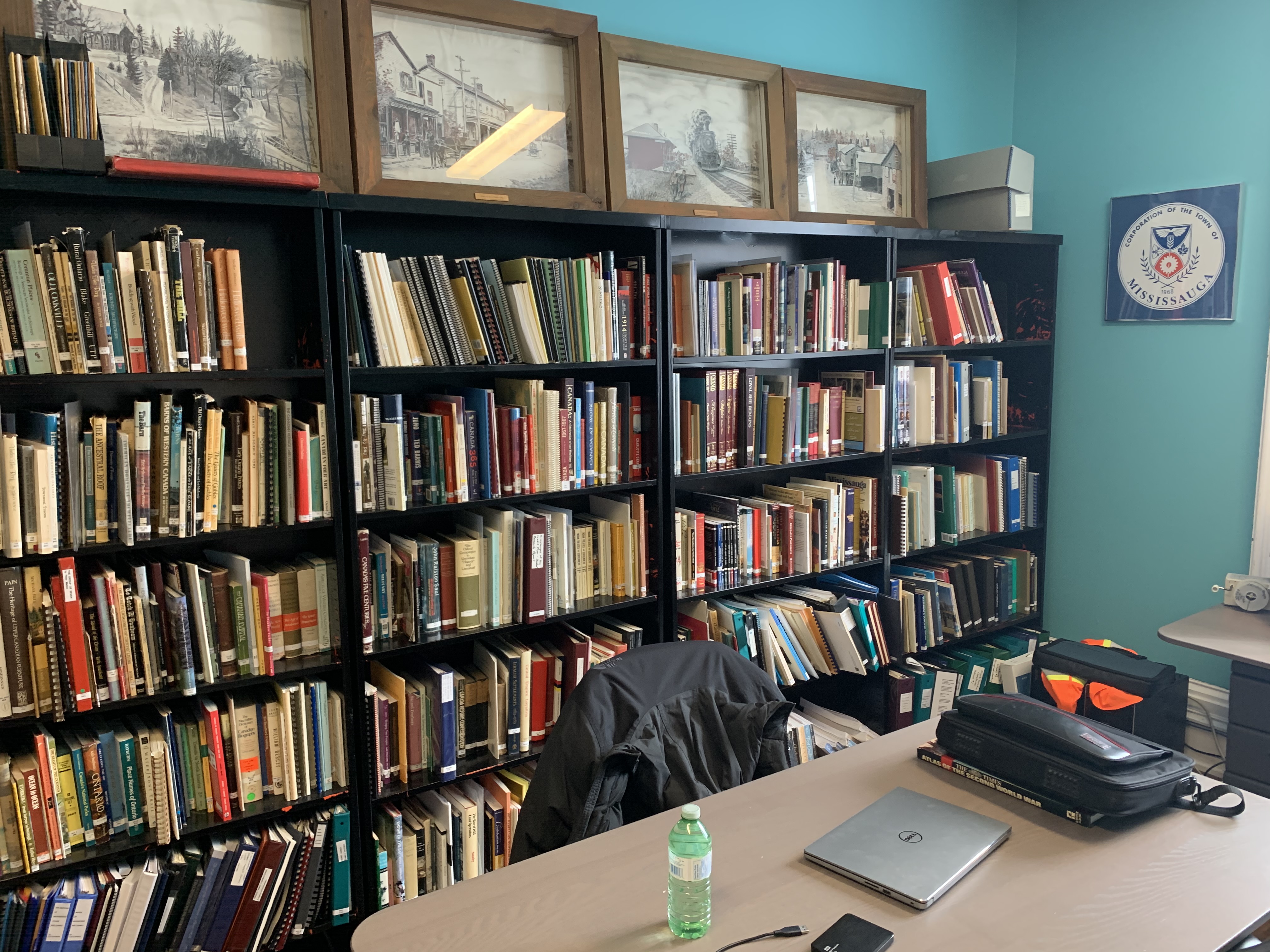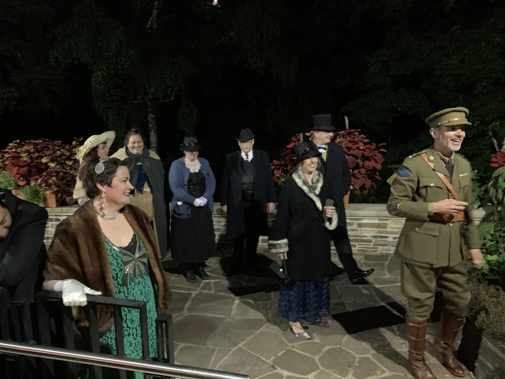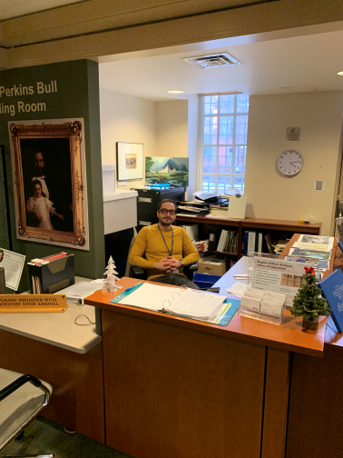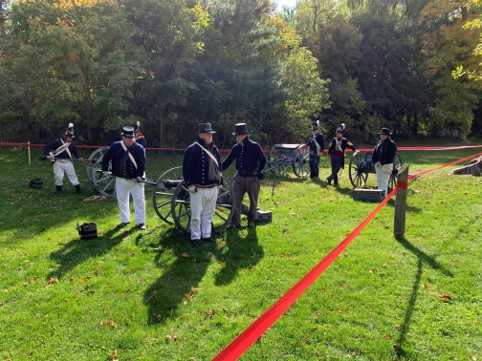 A bookshelf at the Heritage Mississauga office and a desk with my research and writing tools on it. Photo taken by author.
A bookshelf at the Heritage Mississauga office and a desk with my research and writing tools on it. Photo taken by author.
By Ivan Z. Kovacevic
Working alongside a professional historian has taught me plenty about the field of history. From my experience, I have observed what I believe to be the 5 most important aspects of working as a historian, and I have listed them below for any prospective historians to gather a grasp of what it takes to work in the field.
1. Research
- One of the most important aspects of being a historian is having the ability to conduct thorough investigations into historical topics where it may seem there is little to no information available.
- It is a historian's job to find that information and collect it for the purposes of their project. Once that information is collected it is either stored and organized safely for later use within an archive of some kind, or it is interpreted and used immediately to construct a historical narrative.
- Historians have an important job of not only preserving information but making it accessible to the greater population, and historical interpretation has been one of the most common aspects of that mode of information collection.
- The historian I have worked under received a master's degree in the field of geography which prepared him well for the aspects of geographical history that is important to any region. Other degrees such as data management and communications, or any arts and humanities degree would prepare a student for work in the field of history, although a history degree is usually the most compatible.
 Image of Mississauga native speaker at the Credits event. Photo taken by author.
Image of Mississauga native speaker at the Credits event. Photo taken by author.
2. Communication
- As mentioned before, getting an education is an important step in becoming a historian that will also adequately prepare future professionals for proper communication etiquette in the field of history. A historian evidently needs good public communication skills to deliver lectures, seminars, and presentations which are common across all fields of history.
- A popular profession for historians is to become professors, in which case they are expected to conduct ongoing research, deliver lectures, and teach classes to students at their given institution.
- Possessing a friendly demeanour is incredibly important for public historians to engage the general populace, especially when the audience is made up of a younger demographic. It is incredibly challenging but incredibly rewarding to inspire children to become interested in a historical topic or the field of history, as even engaging a child's interest can often be challenging enough.
 Image of historical re-enactors at the Haunted Mississauga event in October 2019. Photo taken by author.
Image of historical re-enactors at the Haunted Mississauga event in October 2019. Photo taken by author.
3. Writing
- While all historians need to write in some capacity for whatever purposes their jobs entail. In which case writing still makes up one of the most important aspects of the job. Only professionally academic historians or historical writers consistently publish publications for a living, and have writing function as their primary work output.
- Writing for publications like scholarly journals are where historians publish a majority of their work, but some historians will publish a number of books (usually if they are more popular and well-reputed).
- Historical writers and academics certainly do the most writing and are the most heavily scrutinized for their work. Writing requires significant research and preparation to be effective, especially in the field of history where writing is less creative and must be correct in any assumptions that are made.
 Image of the PAMA receptionist and archivist Jacob Keszei. Photo taken by author.
Image of the PAMA receptionist and archivist Jacob Keszei. Photo taken by author.
4. Demeanour
- The demeanour of a historian is incredibly important, especially one who engages with the public often. Public historians or academic historians are expected to deliver lectures and engage with their audience, so having a good demeanour, including polite and courteous behaviour not only helps historians perform their duties but makes the difference between a good and a great historian.
- Especially good lecturers can quickly develop a good reputation in the historical community, which can lead to more lecturing and a higher hourly fee for lectures given.
- Historians also need to have good communication skills when interacting with academics, co-workers, subordinates, and any number of people as a professional. Possessing a positive demeanour and working on improving social interactions can increase community engagement and lead to greater cultural awareness for the historical person or topic, and for the institution, all of which benefits not only the historian personally but society as well.
 Image of war re-enactors at the War of 1812 event at Bradley Museum in Fall 2019. Photo taken by author.
Image of war re-enactors at the War of 1812 event at Bradley Museum in Fall 2019. Photo taken by author.
5. Interest
- While it is unlikely that a historian would be interested in every aspect of their topic of research or their professional field, it is important that a historian is genuinely passionate about the work that they do, and enjoy doing it.
- As writing and positive social interactions make up a large amount of a historian's job, it is evident when a historian is uninterested in their own work, and that leads to the disinterest of the audience and the general population as well.
- More importantly, as the old adage goes, "If you do what you love, you'll never work a day in your life" and while the work won't always be enjoyable, being passionate about the work of a historian makes the work so much easier.
